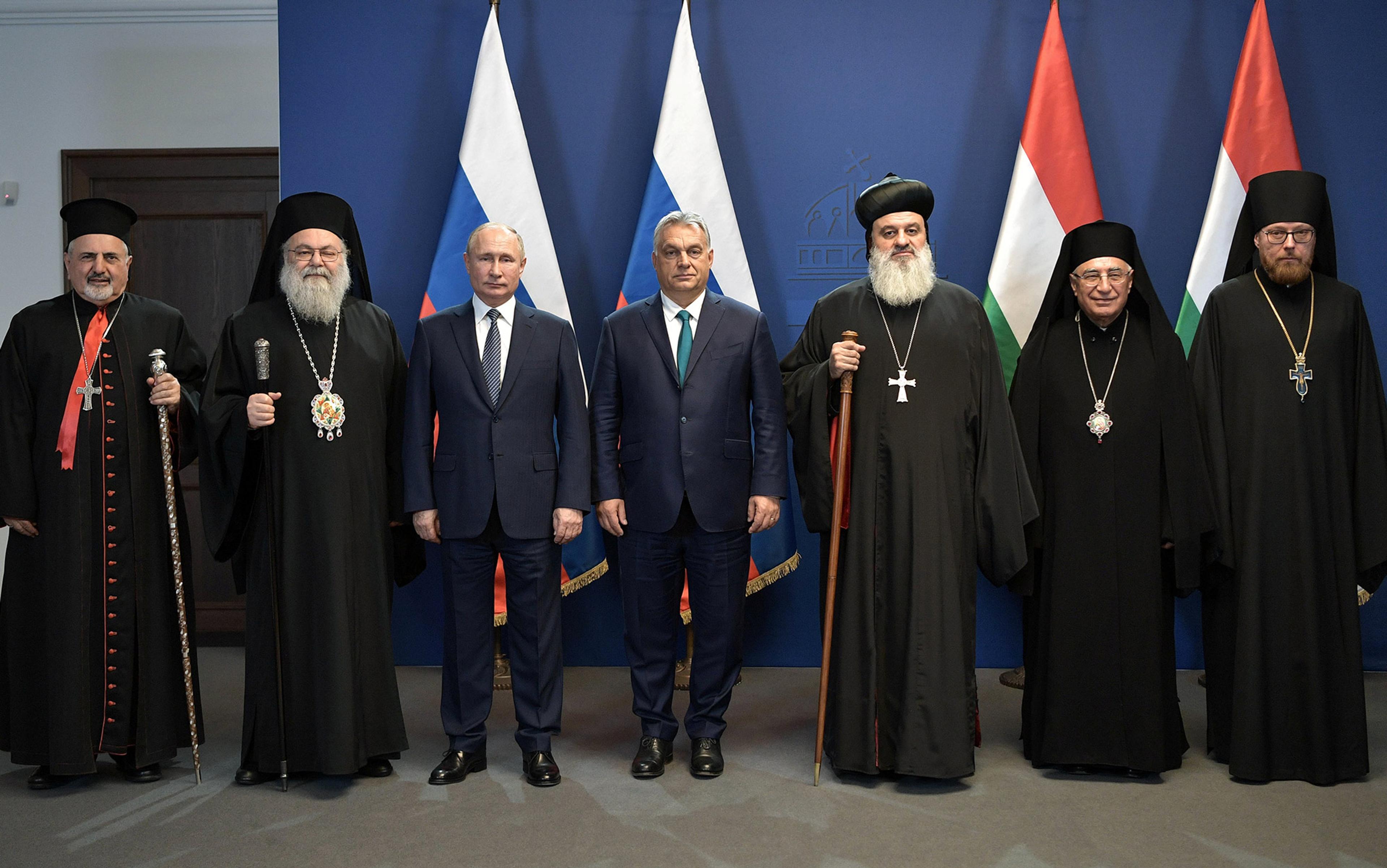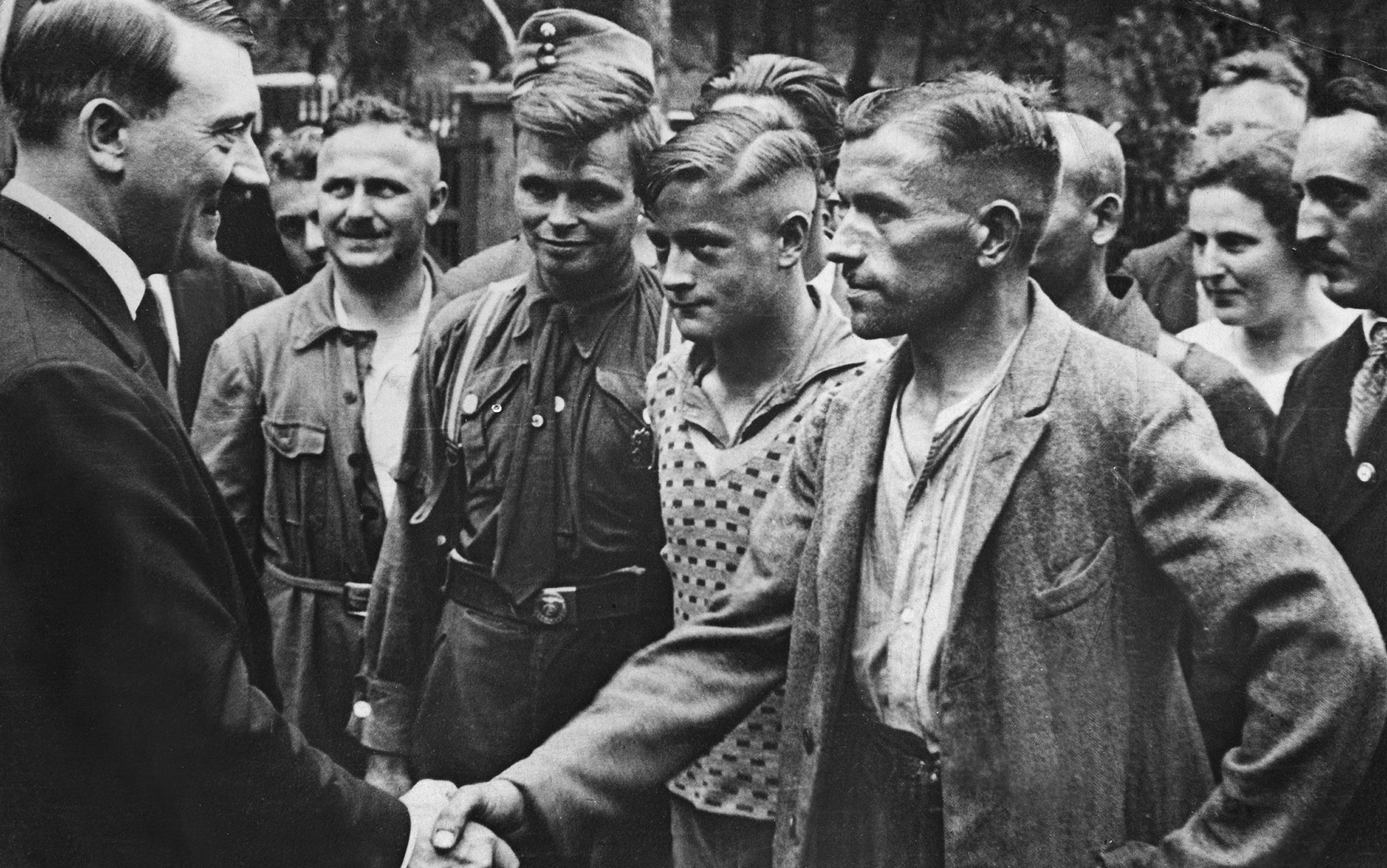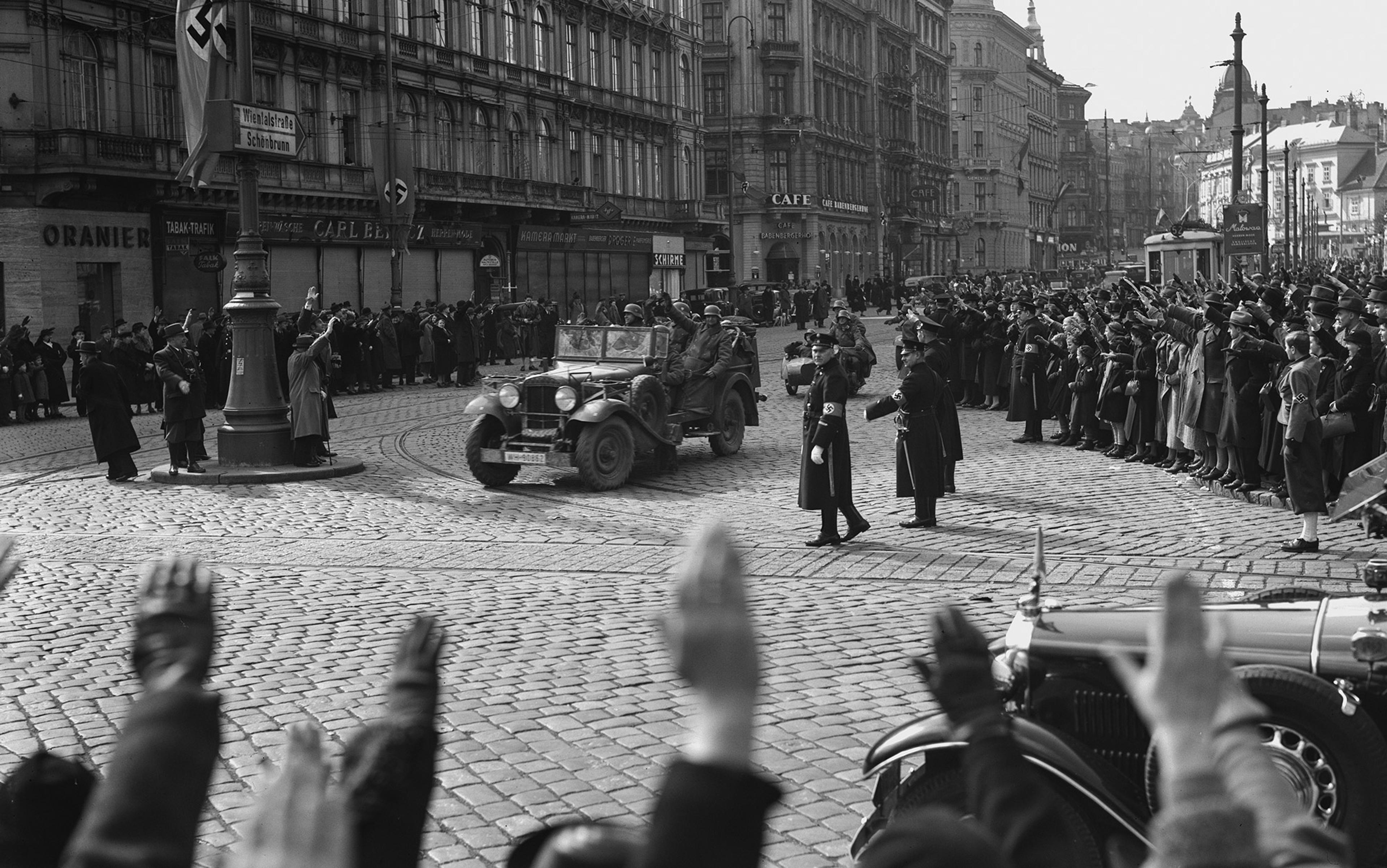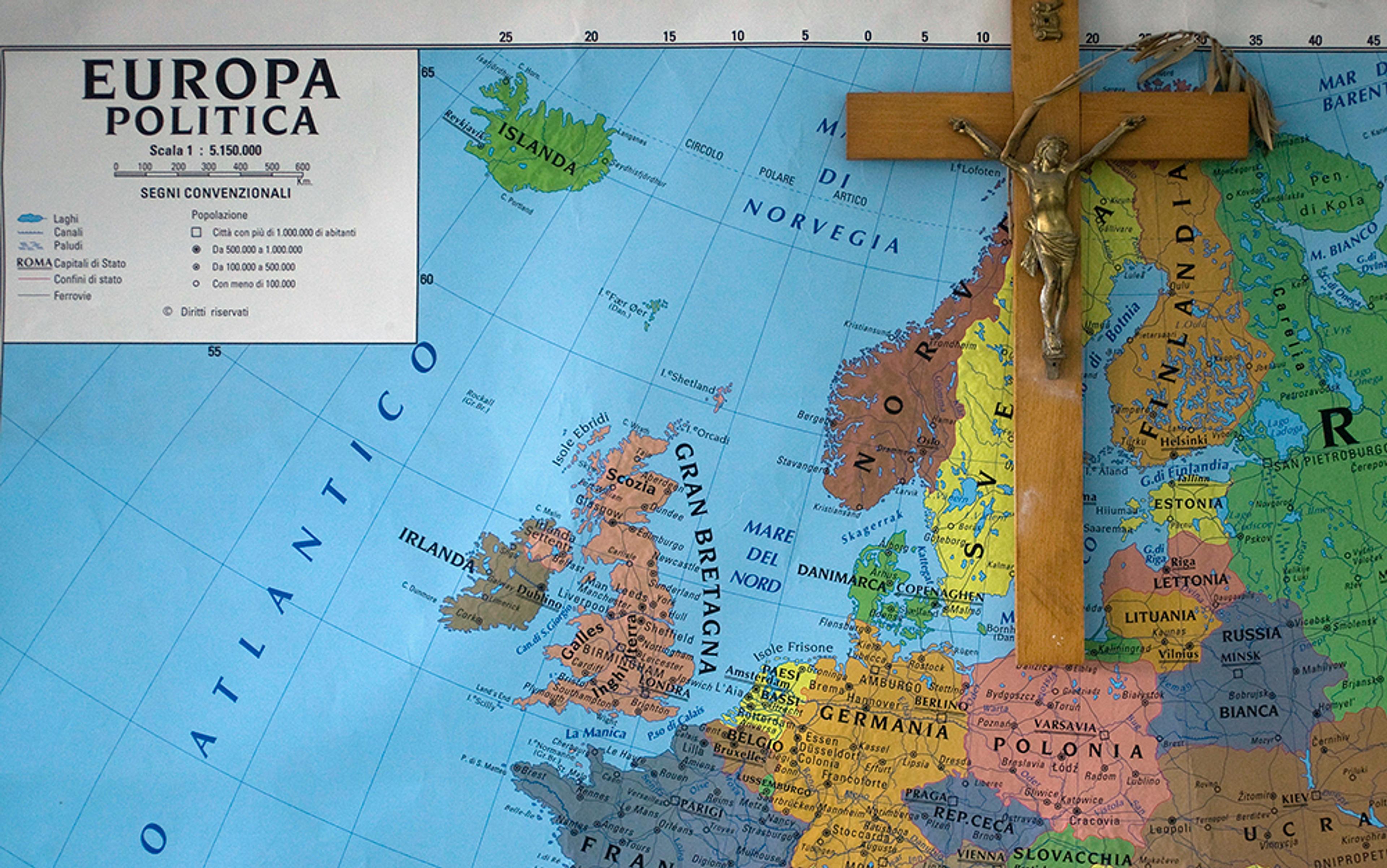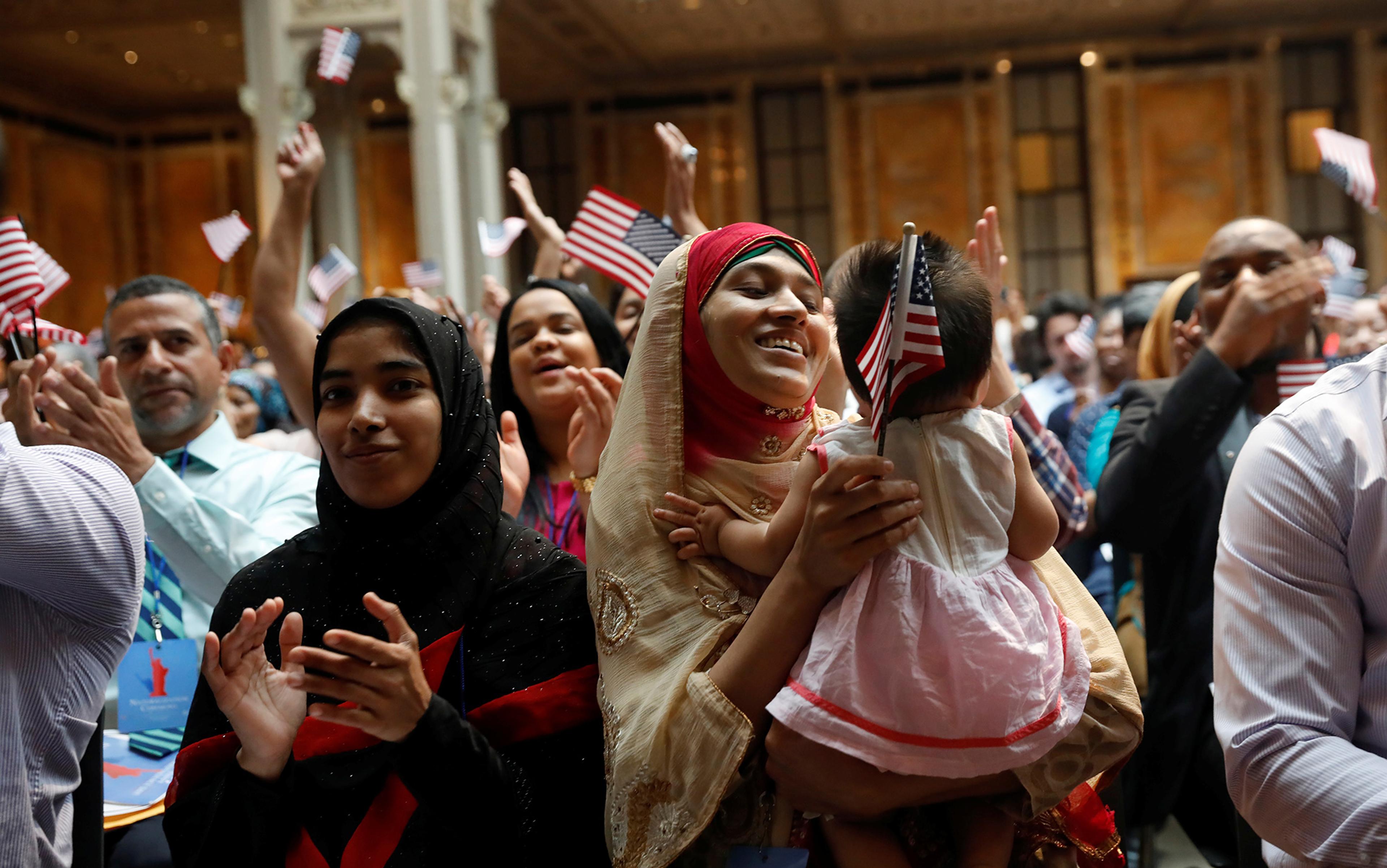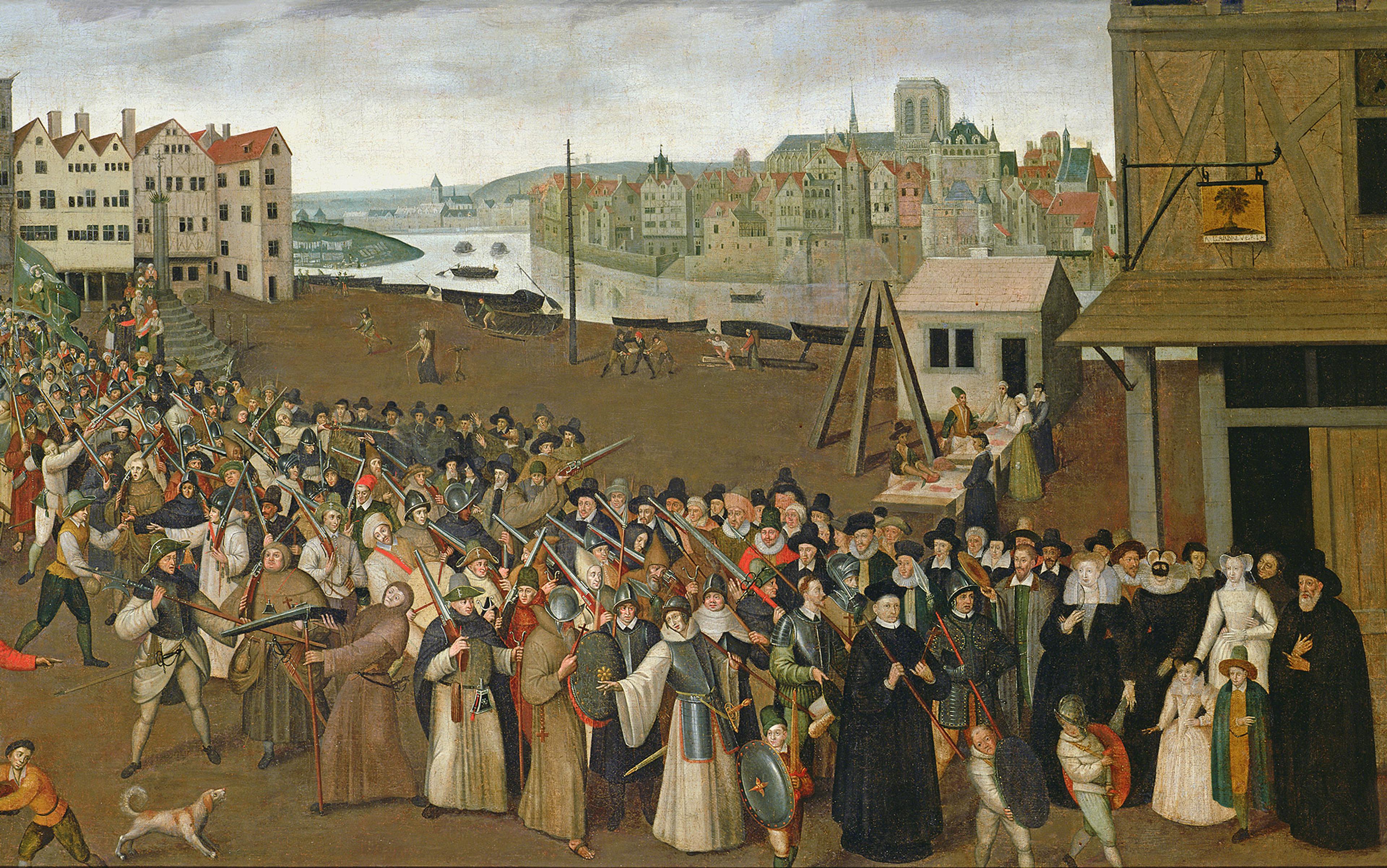Viktor Orbán reportedly does not attend church. Benjamin Netanyahu eats at non-kosher restaurants. New York libertine Donald Trump lacks all manner of evident religious virtue.
Yet it is a fact that today’s crop of aspiring authoritarians invoke religious themes and symbols, despite not being strict adherents to their respective traditions. Of course, there is nothing new about the opportunistic use of religion by politicians. The scholars Garret Martin and Carolyn Gallaher have remarked that ‘Orbán’s use of religion is no different from Ronald Reagan’s embrace of Christian evangelicals in the late 1970s.’ According to these explanations, such figures cynically appeal to religion, despite not being true believers. Given this purported sincerity deficit, a conversation in this register toggles between accusations of hypocrisy and instrumentalism. How can such obviously corrupted figures claim to speak on behalf of a Christian or Jewish nation? And how can voters who claim to be animated by religious values be so blind?
Tempting as it is, the hypocrisy diagnosis does not quite map onto the emerging social landscape. There is instead a deeper and more interesting shift occurring in the world toward a new post-liberal or illiberal order of religion and politics. Understanding the nature of this transformation enables critics to break out of the cycle of allegations of hypocrisy or inconsistency, and to grasp an emergent worldview that is both coherent and deeply troubling.
In order to apprehend what is new in the post-liberal order, we have to first understand how liberalism as a philosophical and political project developed its distinct notions about the proper relationship between religion and the public sphere. Building on Martin Luther’s theological revolution, liberal thinkers from John Locke to John Stuart Mill embraced the Protestant ideal of religion as chiefly concerned with faith, not works. As Luther argued in one of his most influential essays, ‘On the Freedom of a Christian’ (1520):
God cannot be received and honoured by any works, but by faith alone. Hence it is clear that, as the soul needs the word alone for life and justification, so it is justified by faith alone and not by any works. For if it could be justified by any other means, it would have no need of the word, nor consequently of faith.
The degradation of ‘works’ chiefly meant Catholic sacraments – and the corrupt clerics who officiated them – but it also advanced a thesis that later became the cornerstone of secularism: that true religion was private, faith-based, and thus necessarily individualist in nature. Faith alone could save, and faith resided in the realm of conscience, thus liberating Christians from the Church’s clerics and communal structures.
As Luther clarified in his treatise ‘On Governmental Authority’ (1523), the separation of faith from works found a corollary in the division of affairs between spiritual and temporal leaders. The latter, charged chiefly with restraining the wicked from pursuing their passions, had no jurisdiction over Christians in spiritual matters. This did not exempt Christians from obeying their earthly rulers, however – Luther chastised the Swabian peasants who used his theological arguments to justify a revolt against their feudal lords – but it did lay the foundations for an emerging liberal order in which religion came to be regarded chiefly as a matter of conscience. It was within this tightly bounded space that the believer was free.
Locke’s was a dual recipe both for privatised religion and a market freed of ethical considerations
However naturalised this understanding of religion has become, it is worth noting that it remains highly particular and indebted to a Protestant theological orientation. It depends on a number of binaries – between faith and works; the spiritual and the material; the body and the mind; indeed, the public and the private – that are largely absent from Judaism, Islam or Catholicism (indeed, the suspicion that Catholics could not be trusted to properly distinguish their spiritual and material interests helped animate fears of John F Kennedy’s presidency). This understanding of ‘religion’ was fundamental to the simultaneous construction of a secular public sphere supposedly freed from the passions of confession. In his letter concerning toleration of 1685, for instance, Locke assumed that the boundaries between religious and civil affairs were ‘fixed and immovable’. Living in a rapidly changing world of commerce and markets, Locke’s letter conjured an expanded sphere of civil intercourse in which religion remained one’s own private business, unless you belonged to the class of people (eg, Catholics) whose improper intermixing of worldly and spiritual affairs constituted a threat to the civic order. For all others, there could be no objection for a person following their conscience in matters of faith, so long as they adhered to the law of the land.
Yet enclosed within Locke’s case for toleration is an argument for what the religious sphere does not encompass: property, commerce, and political life. It was a dual recipe both for privatised religion and a market freed of ethical considerations, and it laid the philosophical foundation for the expanding capitalist order.
Situated as we are on the cusp of a post-liberal world order, it is apparent that these premises about the nature of religion and its relation to the public sphere are increasingly at odds with observed reality. If religious belonging is no longer articulated in the familiar liberal idiom of belief, this fact signals the collapse of something far more significant than personal integrity.
Hungary offers a prime example of how the new political order rejects many liberal conceptions about the nature and purpose of religion. Since being re-elected to power as Hungary’s prime minister in 2010, Orbán has repeatedly invoked Christianity in public statements and political gestures. Among the more meaningful have been his attempts to cast himself as a 21st-century King Saint Stephen. According to Hungarian nationalists, St Stephen was the legendary founder of the Hungarian nation. He unified the tribes of the Carpathian Basin in the early 11th century by forcefully converting them to Christianity (a fact celebrated by conservatives in the United States). As opposed to flimsy attempts to reach the masses through persuasion, St Stephen embraced the use of state violence to create the moral order he desired. His appeal to contemporary conservatives stems precisely from this willingness to reshape the social and political order through coercion.
Like a funhouse mirror, a liberal ideal of religious freedom returns to us as a vehicle for racist persecution
Orbán styles himself as a modern St Stephen, a defender of Christian traditionalism against its avowed enemies. For Orbán, these include LGBTQ people, Muslims and ‘globalists’. His frequent attacks on George Soros betray deep antisemitism, despite his chummy relations with the Israeli Right (as I’ve argued previously, there is nothing inconsistent with being an antisemite and Zionist; a Jewish nation-state offers one way of ridding countries of their actual Jews). Orbán also speaks with passion about battling Christian persecution worldwide, including within the heart of Europe. At an International Conference on the Persecution of Christians in 2019, he linked the struggles of Christian communities in Africa and Asia to assorted ‘anti-Christian phenomena’ in Europe. He claimed that ‘an organised and wide-ranging attack’ was underway on ‘our culture, our civilisation’, not only in Africa or the Middle East, ‘but also here in Europe – in the land of the most successful Christian civilisation in history.’ According to Orbán, the means of attack vary, but include ‘population exchange, immigration, stigmatisation, ridicule, the muzzle of political correctness’.
So Orbán appeals to liberal ideals of religious freedom. But it is important to note that, here, religious freedom is enlisted to support an antidemocratic project built around racialised notions of religious identity and community. In this rhetorically clever manoeuvre, Orbán and his supporters can accuse those who oppose their agenda as opponents of religious liberty itself. Like a funhouse mirror, a liberal ideal of language of religious freedom returns to us as a vehicle for the means of racist persecution.
Nationalist movements of the 19th and 20th centuries often attempted to locate a non-confessional anchor for their claims of national identity. In contrast, Orbán is very clear that the Hungarian essence is not language, culture or a historic connection to the land but Christianity. The interesting detail is that Hungary is a country where 40 per cent of adults do not believe in God, and only 9 per cent of the population attends church weekly. In an interview in The New Yorker about Orbán, the sociologist Kim Lane Scheppele in 2021 tried to make sense of this puzzle: ‘No one has ever seen him [Orbán] in a church. He is not at all religious. It’s a bit like [Donald] Trump, who also has never really been seen in a church.’ As she further noted, little about Orbán’s personal observance seems coherent: ‘Hungary’s Christians are about two-thirds Catholic and one-third Calvinist … Orbán’s family was Calvinist. He comes from the minority religion. And yet, in his statements about Christian Democracy within Hungary, he’s always invoking the Catholic Church.’
Commentators have expressed considerable outrage at Orbán’s hypocrisy, and there is an entire cottage industry devoted to arguing that Trump is not a good Christian. The problem is not that their supporters can’t see the facts. Rather, it is that they are judging from different criteria. And indeed, the apparent contradictions vanish if we abandon prevailing notions of what religion is supposed to be. Contrary to the liberal model that holds matters of religious affiliation – chiefly styled in Protestant fashion as ‘belief’ – inconsequential to one’s civic status, Orbán’s Hungary advances a competing concept of Christian belonging. Religion in this sense is not a contested assortment of ideas and practices related both to the transcendent and earthly realms, but identity in a far more simplistic way: it is who you are, far more than what you think or how you act.
It is worth underscoring just how distinct this deployment of Christian religious belonging is, based not on faith, submission to clerics, ritual practice nor church attendance, but on simple being. As László Kiss-Rigó, the bishop of Szeged and close ally of Orbán, stated in an interview in The Guardian in 2019: ‘In Europe, even an atheist is a Christian.’
The most obvious contemporary rendering of religious belonging in ethnic terms is Zionism. As a modern nationalist movement, Zionism articulated a vision of political and social identity freed from the constraints of ritual observance and structures of religious authority. According to its late-19th- and early 20th-century ideologues, creating a homeland in ‘Eretz Yisrael’ (the land of Israel) would enable Jews to maintain a communal identity regardless of religious observance. As I have charted elsewhere, this project involved rejecting liberalism’s normative boundary between ‘secular’ and ‘religious’ affairs. For instance, Zionist educators mined the Jewish textual canon for political purposes, regarding the Hebrew Bible first and foremost as a national history textbook. Such practices often exasperated British colonial officials in Mandate Palestine, with their more bounded conceptions of what religion was and how it was supposed to function in social and political terms. According to Jerome Farrell, director of education for the government of Palestine in 1946, the aim of Zionist education was not inculcating ‘a passive, cultural and religious Judaism [eg, “proper” religion] but the nurture of an active, selfish and aggressively secular, and imperialistic spirit.’ The siren song of Jewish nationalism attracted many secular Jews precisely because it offered a politically grounded alternative to religious observance.
The mechanism of the Israeli state exists not to serve its citizenry but the Jewish portion of it
In the Zionist case, some of the ambiguity regarding whether Jewishness is a national or religious affiliation stems from the rabbinic legal designation of anyone born to a Jewish mother as a Jew, regardless of their level of observance. There was nothing particularly unique about identity acquired at birth in the ancient world. But Christianity offered a new way of thinking about identity: not as inborn, but freely chosen, with faith supplanting ethnic particularism. Unlike Jewishness, Christianity held a potential universality, with belief in Christ able to dissolve more narrow social bonds. In this sense, the Catholic Church may have been the first globalist.
Contemporary Christian nationalists have turned away from this universalising vision and towards one that favours distinct communities forever rooted in their purported natural homelands. For instance, sociologists have found that US proponents of Christian nationalism are hostile not merely to non-Christian immigrants but to those from Latin America as well (fascinatingly, the study also found those who attended church regularly were more supportive of immigration than those who didn’t go to church). So, too, one of Orbán’s pet projects, Hungary Helps, which aids persecuted Christians worldwide, is infused with an anti-migratory logic. ‘Help should be provided where the trouble lies instead of bringing the trouble to Europe,’ as a programme spokesman commented in 2019.
This Zionist emphasis on natal status and religion qua ethnos is key to understanding why Israel is so attractive to many Right-wing Christians and white nationalists. This includes some genuine antisemites, who regard the Jewish ethno-state as a template for creating a socially homogenous polity. In this regard, it is worth mentioning Israel’s controversial Basic Law establishing it as the nation-state of the Jewish people (hok ha-le’om). The law, adopted in 2018, demolished whatever pretence of civic equality remained for Palestinian citizens of Israel by making explicit what was long true in practice: the mechanism of the state exists not to serve its citizenry but the Jewish portion of it. It makes discriminatory practices not just possible but enshrines them as constitutive of the nation-state itself. It is no wonder this model is deeply attractive to proponents of post-liberal Christian nationalism.
Zionist thinkers are the centre of national conservatism as an intellectual project that is ascendent not just in Hungary, Poland or Israel, but in India, Brazil, Turkey and the US (the irony of national conservatives as the most successful practitioners of international coordination, if not genuine internationalism, should not be overlooked). The most significant in this regard is Yoram Hazony, whose book The Virtue of Nationalism (2018) attempts to establish a philosophical foundation for far-Right nationalist movements. I’ve written about the centrality of the Zionist experience in developing Hazony’s theory, particularly in his rejection of any form of political model based on choice. It is not, he contends, some sort of voluntary agreement that binds together political communities, but the family, tribe and ultimately nation as the extension of these more elemental forms of sociality.
In adopting this determinism, Christian nationalists have moved away from liberal notions of religion as tied to individual conscience, and thus choice more broadly. In place of choice, they offer a new communalism that subsumes individuals based on the fact of birth. It is this elevation not of the natural but the natal – the inborn, supposedly fixed nature of identity – that binds the new nationalism together, and that helps clarify the authoritarian quality of all post-liberal movements that are mostly willing to dispense with individual freedom. There is nothing ‘natural’ about individual rights, the conservative Polish philosopher Ryszard Legutko told The New York Times in 2021, ‘no such thing as a rights-bearing individual.’ Legutko’s bleak assessment underscores just how much of the assault on individual liberty is conjoined with the right’s fixation on what is ‘natural’.
The preeminent role of natal status in the new Right-wing nationalism, combined with the disparagement of individual choice more broadly, is important for another reason too. It helps explain the obsession, bordering on pathological, that national conservatives display regarding LGBTQ equality, and trans people in particular. What could be more opposed to the Right’s vision of identity as innate and fixed than the trans subject, whose very existence reflects a sort of individual self-fashioning par excellence? What could be more contrary to the claims of liberalism – and yet more resonant with the actual experiences of so many born into the hollow shell of bootstrapping ideology – than the insistence that you are, and will remain, what you were born, that all those paeons to personal choice are insubstantial nonsense?
We are not the mere products of our own creation, as the myth of individualism – so central to liberalism– has long insisted. The new Right understands this social fact as well as any Leftist. But the post-liberals do not imagine using the powers of the state to advance a fairer and more equitable social order, in which the ideals of liberalism might be actualised. Rather, they aim to resolve thorny questions of rights and recognition by denying the individual any substantive ethical position. You are what you were born into, and no amount of education, migration, hormone therapy or affect can change this reality. The racialisation of religious identity is part and parcel of this overarching attack on individual freedom in favour of the supposedly essential.
The new nationalists propose to resolve the old feud between equality and freedom by doing away with both
It might be tempting to regard these developments as the reinvigoration of an older form of communalism, in which religious belief and practice take a back seat to group membership. This form of corporate structure was a feature of both the Ottoman and Hapsburg empires, in which the central state related to individuals through their recognised religious communities. What differentiates the new nationalism is the ability of the community, however defined, to harness the coercive and unprecedently invasive powers of the state. State power is neither remote nor largely irrelevant to the functioning of the community, but interventionist, constructivist and deeply necessary. One of the abiding paradoxes of nationalism is that it requires the state to create a communal order that is supposedly innate. When the new Right speaks of seizing the state apparatus in order to provide society with the necessary moral framework, they betray just how constructed and contingent their own natalist project is in fact.
None of this is surprising to students of nationalism who take seriously the role of the modern state’s institutions – from rail lines and road building, to public schools and the military – in creating the national citizen, of turning ‘peasants into Frenchmen’ in Eugen Weber’s memorable phrasing. But the first wave of nationalist movements were tied, for better and for worse, to a liberal political project built around individual freedoms, democracy and rule of law. In the 19th century, Alexis de Tocqueville observed that, rather than existing as complimentary virtues, equality and liberty might pull in oppositional directions. The history of democracy in the years since can be regarded as a battle between the partisans of each, with neoliberal ‘freedom’ gaining the upper hand most recently.
In contrast, the new nationalists propose to resolve the old feud between equality and freedom by doing away with them both. Orbán’s Hungary is infamous not only for its use of the law to curtail the media, judiciary and political opposition, but the cultivation of an oligarchic class whose fortunes are tied to their proximity to power. Pro-natalist state subsidies aimed at increasing traditional family size – increasingly eyed by US conservatives who have broken from neoliberal principles – exist alongside regressive taxation and an extreme corruption. So too, appeals to Jewish unity and privilege within Israel mask the marked and growing economic inequality that exists even within the state’s Jewish population.
Illiberal forms of religiosity have a special role to play within national conservative movements, of course, supposedly providing the common basis for virtuous life. But the turn away from faith evident within emerging constructions of Christian community also gestures at a more fundamental rejection of choice that undergirds the new nationalism (in favour, so Hazony claims, of ‘collective freedom’). The implications of these shifts are far more troubling, and expansive, than the problems posed by either hypocrisy or religious instrumentalism. Instead of bemoaning seeming contradictions or lamenting the instrumental use of religion for nefarious political ends, it is far more crucial to see the contours of a new, illiberal religiosity coming into being.
